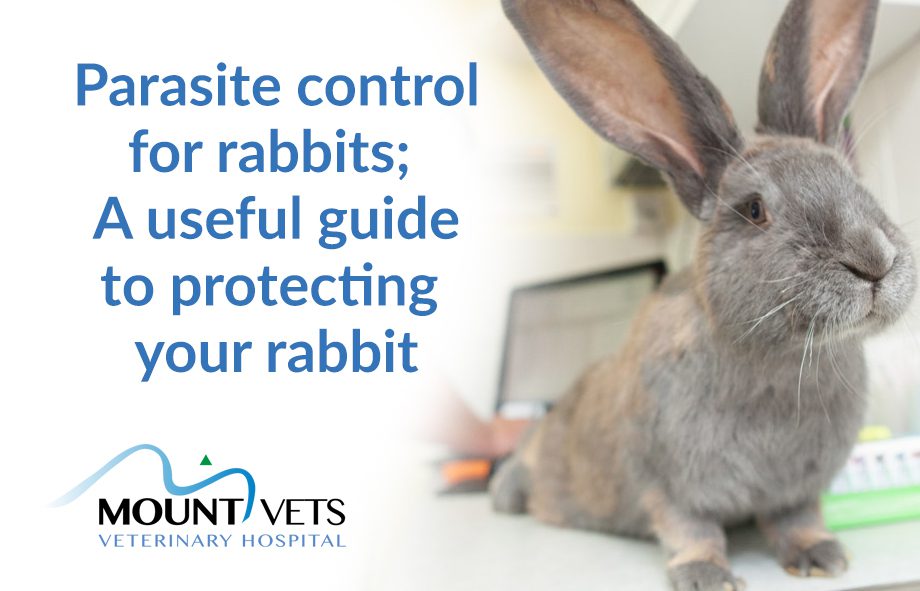There are two categories of parasite that can affect your rabbit – endoparasites live within your rabbit’s body and ectoparasites live on your rabbit’s skin.
Endoparasites
Rabbits do not suffer from roundworm or tapeworm infections like dogs and cats. The only roundworm that can occur in domestic rabbits is called Passalurus ambiguus, or more commonly known as rabbit pinworm. They are 0.5-1cm in size and live in the large intestines. Some people think they might have a role in mixing ingesta and are harmless. Generally this infestation does not cause clinical symptoms, but can be associated with poor hair quality, weight loss and skin inflammation in younger animals.
The rabbit is the intermediate host for several tapeworms that affect dogs and cats. Pet rabbits that graze in gardens inhabited by pet dogs or visited by foxes can become infected.
Taenia serialis and Taenia pisiformis are the most common tapeworms that will cause cysts under the skin or in the abdomen in rabbits. The incidence of these parasites is not high as most pet owners now worm their dogs with preparations that are effective against tapeworms.
Rabbits can also be primary hosts for tapeworms. The cestode species varies in wild rabbits from different parts of the world, however, in domestic rabbits this is a very uncommon condition.
Currently, there is no reason to routinely treat pet rabbits for roundworms and tapeworms. Pasture and environmental contamination can be minimised by rotating the grazing area, cleaning the hutch environment regularly, preventing faecal contamination of food bowls and hay, keeping the rabbit population density low and avoiding pasture contamination with cat, dog and fox faeces.
Encephalitozoon cuniculi is a protozoon that can cause kidney disease, neurological disease and eye disease. A wide range of clinical signs can arise in the rabbit. These include neurological signs, such as head tilt, hindlimb weakness, paralysis, tremors, convulsions and urinary incontinence. The rabbit’s eyes may develop cataracts and an inflammation of the inside of the eye (uveitis). The parasite is spread through contamination of food and water with infected urine. It is a zoonotic parasite, which means that it can also infect people and other animals.
This protozoal parasite is now known to be widespread within the British domestic rabbit population. Good hygiene practices will help reduce the incidence of infection.
Ectoparasites
Fleas and mites can transmit myxomatosis so it is important to regularly treat your rabbit with a suitable product. It is important to treat all animals in the household as cats and dogs may also transmit fleas that may affect rabbits, as well as transmitting diseases that can infect people.
Flystrike is a disease that can affect your rabbit during the summer months. Blowfly lay their eggs in your rabbit’s coat and these eggs develop into maggots that will quickly burrow into the flesh.
Flystrike is a serious disease and can rapidly lead to death. Blowfly are attracted to faecal material so it is important to check your rabbit daily to ensure that all fur is clean and dry. Clean out hutches and change bedding regularly to reduce contamination. Overweight rabbits, older rabbits suffering from arthritis and those with urine scalding or diarrhoea are at a higher risk of developing flystrike.
Our staff will be pleased to advise you about a parasite control regime suitable for your rabbit’s individual needs, please call us on 01823 662286 for advice.


